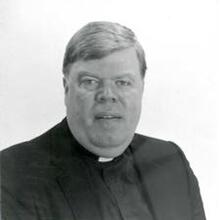It is election season again. Inevitably, it’s also the season for many of our Catholic brethren to do some theological mangling of the political issues at hand. Last week, three different Catholic organizations emailed me a voter guide that claimed to show how Pope Francis would be approaching the American presidential election. I was not aware that Francis had endorsed anyone, so I read the document with interest. When I finished reading the guide—mute on family policy and school choice, tepid on abortion and religious liberty—I concluded that the sponsoring organizations would have better spent their money simply sending me Ready-for-Hillary buttons and bumper stickers. Undoubtedly, thinly disguised Republican “Catholic” leaflets will soon fill up the mailbox as well. In truth, teasing a Trump vote out of any papal utterance will require Herculean literary skills, but I am certain that some earnest Catholic group will attempt to do so.
As we enter the electoral maelstrom, I would suggest the following principles to guide our ecclesial efforts to approach the political in the pulpit, the classroom and the media.
Stress issues, not persons or parties. We should avoid explicit endorsements of candidates and parties, not simply to defend our tax exemption but, more important, to avoid idolatry. The kingdom of God is not coterminous with any political formation or personality. Political formation in a religious setting rightly focuses on the intersection between the moral and social orders. In the contemporary American arena it rightly emphasizes the ensemble of human rights, with a central role for the right to life and the right to religious liberty, that promote the common good. The American bishops’ revised Forming Consciences for Faithful Citizenship nimbly covers the spectrum of issues any Catholic citizen should consider: human life, peace, family, religious freedom, economic justice, migration, education and environment. Their broad, comprehensive vision of social justice is not attempting to place theological twinkle lights on either the Republican or the Democratic platform.
Even when we exercise the appropriate asceticism by focusing on ethico-political issues alone, many in the pews will scream, “The church should stay out of politics!” We must firmly resist the effort to be silent on the pressing questions of political justice. The church is summoned by God’s word to engage in prophetic judgment on the practices of our society. In fidelity we cannot reduce the Gospel to a spiritual bubble bath: all consolation and no challenge. The picket line circling the church is a sign that we are doing our job. Rejoice in it.
Respect the political order. We all know the low esteem in which politicians are currently held. It is easy to shrug our shoulders at the corruption and stupidity that seem to be our political lot. An old college friend recently lamented, “So, I’m supposed to choose between a crazy, sexist xenophobe and a deceitful, corrupt politician who holds the lives of the innocent in contempt?” Perhaps it’s just my circle of friends, but I have never before talked with so many Catholics with a perplexed political conscience. Despite the anguish, we need to avoid demonizing the political realm. The Roman Missal instructs us to pray for our civic authorities in the Prayer of the Faithful, but I’ve rarely heard it. It would be right and just to pray for our president, governor and mayor by name in our worship. Political homilies need not be limited to ethical issues. When is the last time you heard a sermon on King David as a good ruler or Esther as a model political lobbyist? Just as the moral and political orders often intersect, the duties of the citizen and disciple are subtly intertwined in the pursuit of neighborly love.
Relativize the political order. The oddness of our current political season is not confined to the character of those who would govern us. It is found in the growing tendency to reduce universal moral principles to a matter of fleeting social or personal taste and to elevate the political slogans of the moment to the level of moral absolutes. The Golden Rule endures from century to century as political regimes and parties crumble into the dust. Even in this bitter season of political discontent, God alone is great.








